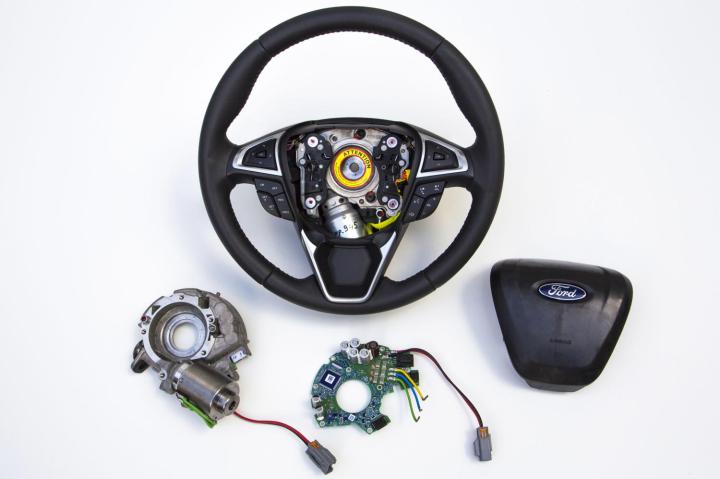
Ask any hardcore gearhead what’s wrong with modern cars, and they’ll probably mutter something about electronic power steering, along with a few expletives.
While the technology has matured considerably over the past few years, the switch from hydraulic to electric assist came with a decrease in natural steering feel, and a suspicion among some enthusiasts that the robots were taking over.
Those people may not be comforted by the latest news from Ford, which plans to launch its new adaptive-steering system within the year.
The “adaptive” part comes from the system’s ability to change the ratio of driver inputs (the number of turns of the steering wheel) to front-wheel turn.
At low speeds, adaptive steering would increase the amount the front wheels turn for a given amount of input (a “quicker” ratio, in industry speak), making the car easier to maneuver in tight spots, like parking spaces.
At high speeds, the system could switch to a “slower” ratio, increasing the amount of steering input needed to turn the wheels. This would mitigate the nervous or dart feeling some cars have at highway speeds.
Ford will accomplish this by simply installing an actuator inside the steering wheel; it says the rest of a given car’s steering system will be untouched.
This linear electric motor will augment the driver’s own inputs, but – unlike the drive-by-wire system offered in the Infiniti Q50 – the wheel is still physically connected to the road.
So while Ford adaptive steering may add convenience, it may upset more-traditional car fans, who will likely question further interference between the road the and their own two hands.
The Blue Oval isn’t the first carmaker to toy with adaptive steering. Audi, BMW, and Lexus all have their own systems, although none are quite as simplistic as the Ford system, and of course the feature is only available on more-expensive luxury cars.
Ford will offer adaptive steering on select models beginning in 2015, but the system’s simplicity means it could be offered on virtually any type of vehicle further down the road, the company says.


